I haven’t done one of these posts in a while. I sometimes write about community events in my Newsletter (you can subscribe here), but event happen faster than I can post about. Here are a few fun things that happened in the community in February!








I haven’t done one of these posts in a while. I sometimes write about community events in my Newsletter (you can subscribe here), but event happen faster than I can post about. Here are a few fun things that happened in the community in February!








I haven’t done one of these in a while, doing more of these types of community-happenings updates on my newsletter (subscribe here). But I am iterating how I use my communications channels with the community, and as will sound familiar to regular readers (Hi Mom!) I am working on how to keep loving, hopeful and optimistic in the face of a pretty negative political atmosphere online at every level of government. And being in the community in New West is what actually builds that hope and optimism in me. So here are some of the things I did last month that are only peripheral to my actual work:

I was honoured to give opening remarks at the annual Terry Fox Run. We had a solid turnout in New West yet again, thanks to the efforts of a strong volunteer force. In my remarks, I spoke about Terry’s perseverance and how only a hopeful vision of a better world could have motivated him though that first lonely 900 km through central Newfoundland. We feel the inspiration that is Terry’ gift, but rarely think of how hard it must have been for him to believe at times. https://run.terryfox.ca/55710

PechaKucha New West was back with its 33rd edition, and it had a bit of a “getting the gang back together” feel. For those who missed this event, where people talk for a tight 400 seconds (“20 slides, 20 seconds each”) about something that inspires them or challenges them, from Philippine food culture to Boy Bands to public toilets, there is another event November 16th. https://www.pechakucha.com/communities/new-westminster

The Wosk Centre in Vancouver was the host of a public forum on Citizens Assemblies, entitled Public Dialogue: How a Canadian Innovation Sparked Global Democratic Change. We learned about the history of Community Assemblies, from the initial BC Assembly on Electoral Reform to the current models with examples from Burnaby, Gibsons, and New Westminster. You can watch it here and be inspired! https://www.sfu.ca/dialogue/news/2024/bc-citizens-assembly.html

In September, I was also witness to the opening of Móytel Lalém, the affordable housing development on Eighth Street belonging to the Lu’ma Native Housing Society and Swahili Vision. The building and landscape are beautiful, and features 96 truly affordable homes in the heart of the community. The opening was spiritual and inspiring, and helped reinforce the many partners that are required to make a project like this succeed. It was an honour to represent the City and thank everyone for making this happen in our community. More info here: https://www.lumadevelopment.ca/projects

September also brought the Climate Strikes to Vancouver, and it was apropos to walk over from the wrap-up of the UBCM meeting on the Friday and join many New Westies at the Vancouver Art Gallery to talk about Climate Action. What I totally didn’t expect was an impromptu performance by Billy Bragg, and a chance to meet and chat with him. So here is a link of him playing my favorite song of his (and Woody’s) https://www.youtube.com/watch?v=CMAq49dqNlY

Every September, local Tabla virtuoso and cultural ambassador Cassius Khan brings the Mushtari Begum Festival of Indian Classical Music and Dance to Massey Theatre, and every year it is a remarkable showcase of music and dance. You don’t need to know your Satvik from your Mohan to be dazzled by the skill of the players, and the meditative quality of the music. You should see this next year! https://www.masseytheatre.com/event/13th-annual-mushtari-begum-festival/

World Rivers Day is also in September, and the Fraser River Discovery Centre celebrate with RiverFest, which includes one of those unique New West traditions- The Lucille Johnstone (no relation!) Tugboat Parade, which is a little bit parade, a little bit rodeo, a little bit dance performance. https://www.youtube.com/shorts/sZZfpzxLGJw

This was the first year of a new event – Ukrainian New West Fest! A celebration of Ukrainian culture and traditions, and a coming together of the region’s growing Ukrainian community, hosted by the Holy Eucharist Cathedral on Fourth Ave. and the Ukrainian Catholic Eparchy of New Westminster. It was a great opportunity to tour the Cathedral with its remarkable art program, and to build solidarity with a community persevering through the horrors of a homeland wracked by invasion and war. https://www.heucc.co/
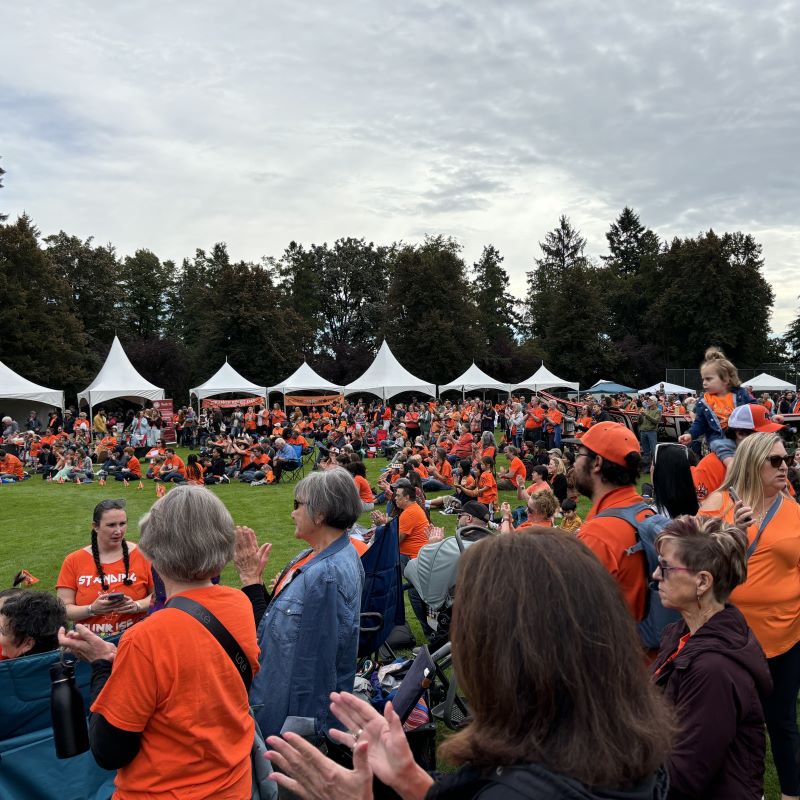
And finally, New Westminster really showed up for the National Day for Truth and Reconciliation Day events at Queens Park. I appreciate this event because I get to attend, listen, and witness without having to give a speech or speak for the City. This is a day where Indigenous people are centred and speak about their experience of colonization and residential schools, and those of us without those experiences are asked to listen, learn, and reflect on what it means to the work we need to do here on these unceded lands. Spirit of the Children society put together the program, which both inspires and challenges the community. It is a really powerful day. https://www.newwestcity.ca/calendar-of-events/events/7875/2024-09.php
The days are getting shorter, the evenings are starting to cool off, the PNE rains have come and gone. Though the Equinox is three weeks away yet, most of us are looking back at the summer that was, while everything we put off until “after the break” is starting to loom large in our calendars for September. Labour Day always arrives with a mix of feelings: summer’s last hurrah, excitement of a new school year and a new recreation schedule, imminent pumpkin spice.
Labour Day is not just another day off, it is a day off won by working people organizing and asserting their rights. It is a celebration of battles won, a reminder of the quality of life granted to all working people because of 100+ years of work and sacrifice and solidarity though organized labour. It is also a call to assure that the rights won and economic prosperity driven by fair wages are not lost to the imaginary economies of neoliberal austerity.
Workers continue to build this City, this Province, and this Country. At the same time, right-wing politicians at every level are working to protect the record profits of multinationals at the expense of working people. They may talk a long yarn about “affordability”, but they are conspicuously silent when we discuss the erosion of real wages, or how austerity hurts the very social fabric that makes a society livable. They speak about supporting workers, but their votes tell a different story.
In New Westminster, our community is served every day by the professionalism and dedication of members of CUPE, the IBEW, the NWPOA and the IAFF. In the broader sense, our community is also served every day by the Teamsters who are right now fighting the rail multinationals to protect their hard-earned workplace rights and the safety of not only their workers, but all in their community. Our community is also served every day by the ATU members fighting right now to assure reliable and publicly-operated para-transit service remains available to the most vulnerable people in our community.
I was proud to spend some time up at Edmonds Park today showing solidarity with my friends in the Labour Movement: the leaders at every level, and the folks who show up every day and quietly build community while they provide for their family. The fight goes on. Not just on Labour Day, but every day.
I might have mentioned that I have a Newsletter. Over there, I talk a bit more about day-to-day events in the City, a bit of politics, a bit of opinion. You need to sign up to get it, which you can do by hitting this link. They come out (almost) every Wednesday night. Here is a preview of a few things that I wrote about this week, sign up if you want to know more!

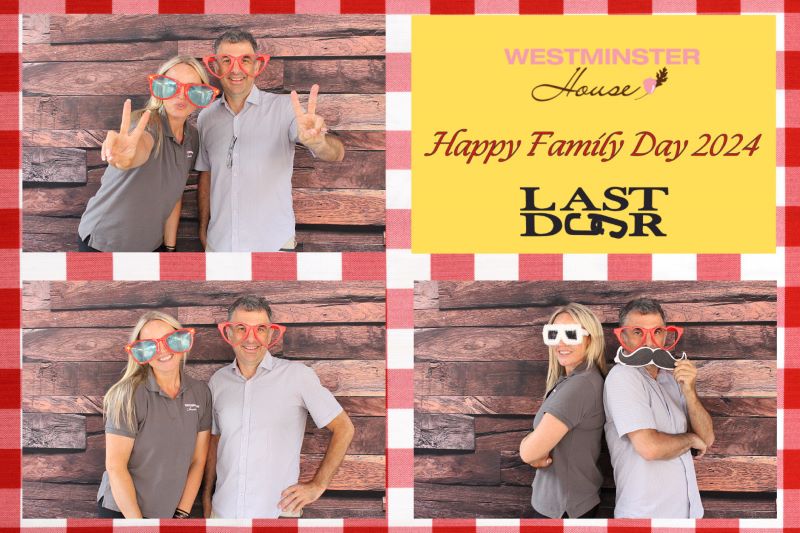

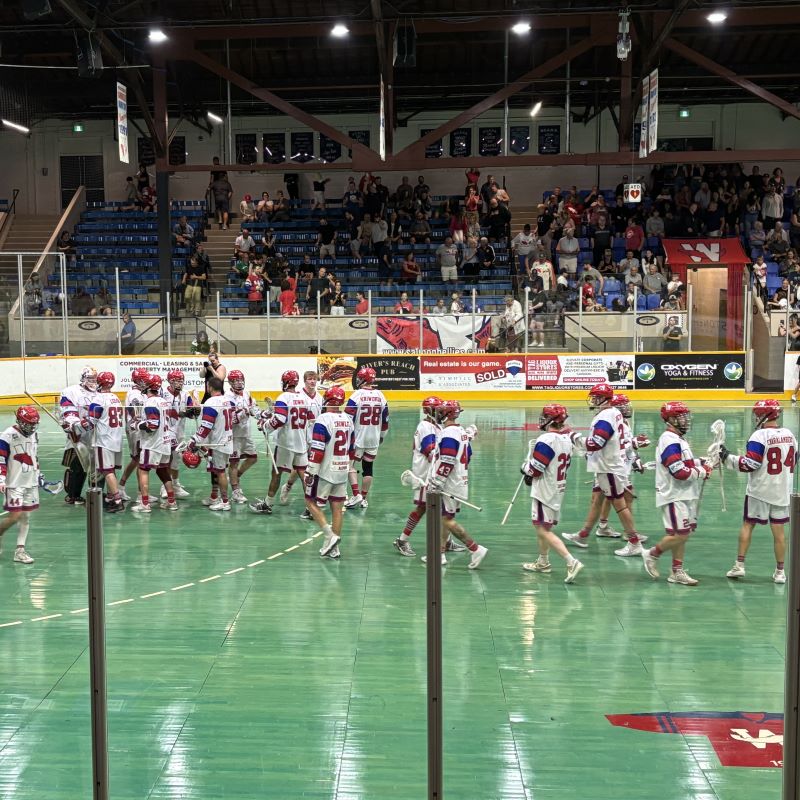
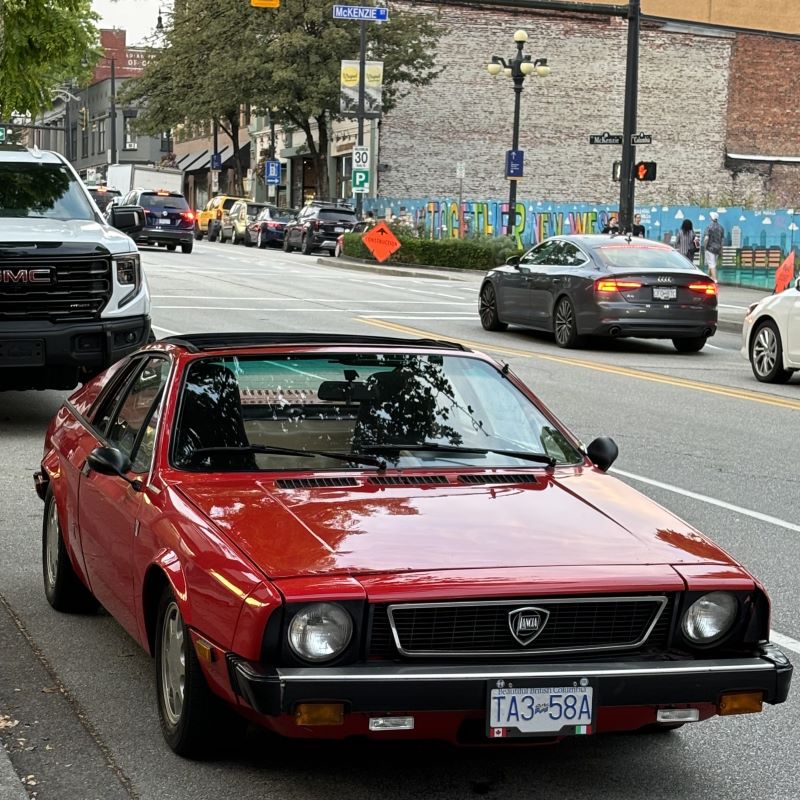
It’s Pride week in New West.
For the 15h year, New West is marking its own Pride Week with a series of events, you can check out the entire calendar here, because it isn’t just about the Street Festival on the 17th.
As the week kicked off with the Flag Raising at Douglas College (the DSU and the College itself have been incredible supporters of New West Pride, and were there to help it grow from a small, one-day walk to a week-long-plus event!), and a flag Raising at Friendship gardens at City Hall, and a flag raising at the NWPD department on Columbia Street. These events have had be thinking a bit more recently about the evolution of the Pride movement (represented in part by the evolution of the Pride Flag), and how recent events, locally and globally, have changed the context of Pride.
I think some of us (yes, there is a cis-normative and euro-colonial bias here) have felt that the “fight” has been won, and Pride is more of a celebration of that than a protest against continued injustice. Right to have your marriage recognized, protection from state discrimination or persecution, the end of sodomy laws, these were big fights worth celebrating. But there are active movements right now here in North America to move backwards on these rights, and to prevent basic human rights and appropriate informed medical care to people who are not cis-conforming, with Trans and Intersex people facing the brunt of the intolerance and hate. The inclusive pride flag reminds us that until we all have rights, none of our rights are safe.
It shouldn’t take the persecution of a cis-gendered woman on an international stage, simply because she didn’t conform to a Eurocentric standard of beauty or sense of gender stereotypes for people to speak out about the harms faced every day by Trans and Intersex people, but here we are.
I am not trans, I am not intersex, but I try to be an ally, and often don’t know what allyship looks like, especially when I have this bully pulpit (that term being used in the strictly Rooseveltian sense). It is one thing to say we will not tolerate offensive of discriminatory speech in Council Chambers, and to take action to limit that even with public delegates, but what about the broader discourse in the City? There are a few vocal anti-Trans activists in New Westminster, and a small number of familiar local Social Media denizens who post discriminatory and often hateful rhetoric about members of the Trans and Intersex community. What is my duty as a leader in the community to call this out? To call these people out?
Should I stay out of it or be more vocal? Would I only be calling attention, adding to their audience or even legitimizing their “alternate view” by daylighting it, considering they are operating in a small bubble? Do I run the risk of being a “bully” (in the literal sense) by punching down at people who are, in turn punching down? Or am I being complicit in my silence when I see it and don’t denounce it every chance I get? What’s the balance?
I have taken to opening this conversation with folks I am chatting with at Pride events, especially to people I recognize from social media. Because I think I need to take some guidance from the community on this, and from the community impacted. What’s my role? Learning, listening and thinking about this is my work this year to exercise my allyship. I’m sure it won’t be a consensus on what my role is in combatting local on-line hate, but I’d love to hear from you if you have an opinion.
June’s been a very busy month with little time to get a bike ride in or write about the things going on. The long weekend couldn’t come fast enough, and I got a nice long bike ride in on Saturday, so here is another piece of catching up, sorry it took a month to get here!

Back in the beginning of June, Councillor Henderson and I attended the annual Federation of Canadian Municipalities meeting in Calgary. I gave a bit of a photo preview here, and people who subscribe to my Newsletter got my summary of the politics part of the program, so that leaves this post as a bit of a broad overview and my highlights from the meeting.
FCM is the annual meeting of local government leaders from across Canada. As Lower Mainland LGA is for the Lower Mainland, and UBCM is for the province of BC, FCM is a chance for us to get together, attend tours, workshops and panels to learn what’s happening in other jurisdictions, share our successes, challenges and opportunities, and do some networking. It is also an opportunity for us to meet with national agencies (the Federal Government, Railways, Ports, etc.) and talk though issues or opportunities.

FCM is not my favorite conference. The municipal-federal relationship is a bit less clear than the municipal-provincial one, and FCM tends to skew towards the rural, with many more representatives from small towns in the Prairies and Ontario than there are form the urban areas with who we share challenges and opportunities. This year provided a couple of unique opportunities to talk to folks about train whistle cessation, the Green Municipal Fund, and some other funding opportunities in the transportation and housing files that tipped the balance towards attending in Calgary. Those conversations, still being preliminary, I will be talking more about in the near future.
Solar Energy
As a member of the New West Electrical Commission and somebody generally interested in the energy transition, I leapt at the opportunity to take a tour of new solar generation projects in the Canadian city most closely aligned with fossil fuels. Like most events at FCM, this tour was also a chance to talk to other people around the nation to hear how their transition plan is going (Kirkland Quebec: 75% of their municipal fleet is electric, but two municipal buildings run on diesel generators because of an underdeveloped electrical grid; Summerland BC has invested not just in solar, but in battery storage for peak shaving), but the star of the show was three installations of new solar power by the City of Calgary.

We saw an example of small installations on the roof of neighbourhood community centres, where the queerness of the Alberta “Micro-Generation Regulation” makes it illegal for a project like this to produce more energy than consumed by the building that hosts it. We saw a medium-sized (1.2M kWh/year) solar-panel-as-parking-lot-shade project, and a larger (5.5M kWh/year) filed array at a landfill site on the edge of town. There were some great learnings here about snow (not much of a problem, except when the warm panels melt it and make the parking lot below a skating rink), hail (they manage golf-ball-sized hail without damage) and design angles (turns out pointing arrays optimally at the sun is less important than you think), and various technical and lifecycle costing details.
In the end, it always comes back to economics, and it is hard to translate the Calgary example to British Columbia. First, their consumer electrical rates are highly variable and typically twice BC Hydro rates, so their pay back times and value as a hedge against price uncertainty do not translate at all. Secondly, Alberta still has fossil fuels as the foundation of its electrical generation base, meaning the GHG reductions resulting from these installations are significant, where in BC this would simply not be the case except ins a few off-grid communities.

Sustaining Growth
A common theme across workshops was the challenge of growth and trying to keep up with infrastructure funding. It was a bit relieving to hear it wasn’t just me, as these pressures are being felt in many regions of the Country, from Saskatoon (14,000 people moved there last year, while only 2,500 new housing units were built, having predictable impacts on homelessness, rents and vacancies) to Toronto (much like BC, the Province is bringing in aggressive legislation to drive local development, but not providing tools to fund infrastructure investment).

Among stories of Exciting! New! Massive! Developments! like Quayside in Toronto, Zibi in Ottawa, and Brighton in Saskatoon, the stories are more about development paused due to interest rates, construction costs, and economic uncertainty, local challenges in funding important infrastructure to support the growth, and a general inability to find the financing room for significant affordable housing among new developments. At the same time, jurisdictions across the country are seeing increased downloading of provincial infrastructure costs (school, hospitals, etc.) to local governments while provincial governments in the same breath blame local governments for increased development costs – one of the few tools local governments have to pay for those downloads.
It’s almost like people are starting to recognize the Market is not going to fix the problem created by two decades of runaway market growth. This is hardly news in Greater Vancouver, but to hear the same lament across the country in cities of various sizes comes with both the comfort of not being alone, and the recognition that this is a national crisis that needs a national response. No amount of digitizing local building plans or using AI to speed up approvals is going to fix it. We need a new financial model.
Municipal Growth Framework
The FCM itself does common advocacy, and they are addressing the infrastructure funding gap by asking for a new Municipal Growth Framework. There were several discussions of this during the conference, and it was referenced by the Federal housing minister during his address to the delegates.
Fundamental to this is a review of the funding model for local governments, dominated as it is by the single tool of property tax. Even the way we tax property is such that it is not intrinsically linked to population and economic growth. The senior governments get most of their revenue from income, sales, and consumption taxes. When the economy grows, their tax revenues increase automatically track along with it, because a growing economy grows incomes, sales, and consumption. Though people have the impression property taxes are increasing at unprecedented rates, they are not increasing anywhere near the rate of the thing they tax – property values:
The MGF also asks for the Federal government to step up their contribution to municipalities by $2.6 billion per year (which is about 5% of annual GST revenues), and to index these contributions to GDP growth. There is also an ask for Provincial Governments to agree to match these federal investments through reform of municipal finance, or allocation of a portion of PST or Provincial income taxes.
Finally, the MGF asks for a comprehensive plan to address chronic homelessness through federal re-investment in non-market housing, and a more coordinated approach between federal and provincial governments.
Alas, at least one of the panels I attended around this need for public re-investment in our communities kept circling back to some apparent need for municipalities to “reduce transaction friction” and “build structures where business can invest [in infrastructure] with certainty”. The neoliberal imperative filtering back into the problem created by 30 years of neoliberal austerity.
Mental Health innovation
This was an excellent panel comparing three different municipal approaches to a nation-wide challenge – addressing the community impacts of the mental health crises. The PACT program in New Westminster was one of the models presented (by the Canadian Mental Health Association), along with EMMIS in Montreal and REACH in Edmonton. The targets and the approaches vary quite a bit. This is most obvious in the funding sources, EMMIA being a $50 Million project over 5 years, with the cost evenly split between the Province and the Municipality, where REACH is about $4.5M Million a year, 100% funded by the Municipality, and PACT is 100% funded by the Provincial government.

In Montreal, there is not just a diversion and crisis support function, but also a function to address “social cohabitation issues between people who share public space”, which more closely parallels the City of New Westminster’s Three Crises Response Pilot.
In Edmonton, there is a close tracking of activity and success, and through 33,000+ responses and 4,000+ emergency service referrals, they have tracked the social return on investment of at least $1,90 for every dollar invested. Montreal has seen similar levels of pay back, though the tracking of health care savings and other externals is surely an underestimate.

Finally, there was an excellent expert panel on protecting the health and safety of municipal workers (included elected officials) at the front line of the polycrisis. This spoke of the tools we need to give staff who are addressing a perceived or real loss of civility and standards of respectful behaviors, on the streets and inside City Halls. There was much discussion of the widespread introduction of Integrity Commissioners, and the challenge they have in addressing egregious behaviors, when so many of our policies and practices are based on an assumption of good faith. It was commonly recognized that good faith was not a universal political or social principle these days, presumably driven by social media and increased anxiety in the pandemic hangover.
As maybe a final take-away, one of the benefits of a meeting like this is the recognition that none of your challenges are unique. Municipalities across the country, in every province, are dealing with similar and overlapping challenges. Talking to our cohort, there are areas of work we need to be very proud of in New West – our aggressive Asset Management Plan, our leadership in PACT and with our Three Crises Response work, while there are areas we can benefit from the experience of others.
Last week was mostly spent in Calgary, attending the annual Federation of Canadian Municipalities meeting. This is the annual get-together of local governments from all across Canada to network, share, learn, and advocate. It is not my favourite conference (I find UBCM more relevant) and I have not attended in a few years, but this year brought the opportunity to have some meetings about some specific issues important to New West (more on that later), so packed the bags and booked the flight.
As usual (see here and here for example), I will provide a more detailed report on my FCM take-aways in a follow-up post here. In my Wednesday newsletter (link here to sign up and get the juice into your mailbox), I’ll write a little more about my thought on the political part of the conference, where we had very different addresses from the Prime Minister, the shadow minister from the Conservatives, and the leader of the NDP. In the meantime, here are a few pictures of the Calgary FCM experience:










Wow. It’s really happening. After more than a decade of planning, we are finally opening the doors on təməsew̓txʷ Aquatic and Community Centre.
I don’t want to write too much here, I want the images to tell the story. Even more, I want you to go down to təməsew̓txʷ and see for yourself what an incredible facility the community has built.
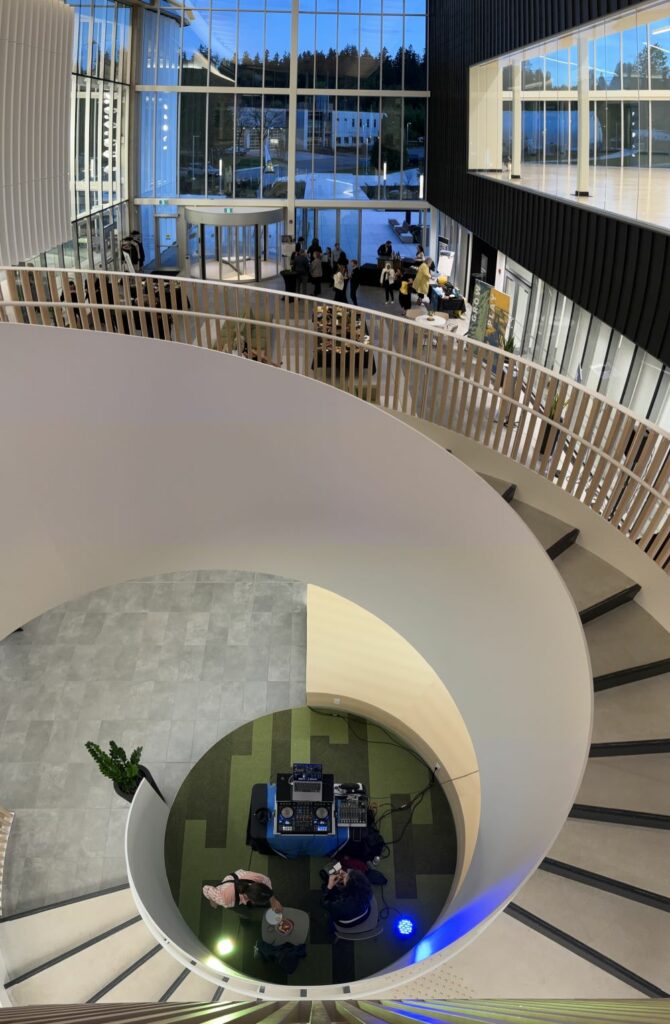
The Grand Opening is June 1st, but as we slowly open the doors and bring programming to the new facility we have had a couple of opening events.
The first was a thank you to the teams that made this happen. This included Mayor Cote, who lead the Council through some of the most challenging consultation, design, and decision-making that led us to this day. It was wonderful to be able to celebrate with Councillors Puchmayr, Harper, Das and Trentadue, who each had a role in the development of this project. From the first decision that a new facility was needed, through public consultation, initial design, more public consultation, procurement, and the final go-ahead in 2020, these leaders were there to help guide us to today, and deserve a victory lap of the pool, and the gratitude of the community.

We also got to thank the team that made the vision a reality. The architects at HCMA, the project managers at Turnbull Construction, and the builders at Heatherbrae. They worked with our stellar project delivery team at the City to deliver this project within weeks of the planned opening and within 5% of the original budget.
If that sounds like I’m hedging “On Time and On Budget”, I want to walk you through the headwinds this project faced. Council had to make a procurement decision at the peak of the 2020 COVID pandemic – a time of unprecedented global economic uncertainty. We were guided with expert advice and (it turns out) incredible foresight to procure then the market conditions could not have been better. Since then, the news tells us of a protected regional labour action affecting the concrete industry, a global supply chain crisis, unprecedented regional construction labor shortages, and the highest construction inflation rates of a generation. Through all that, this incredible team brought this project home – an absolute gold medal performance.
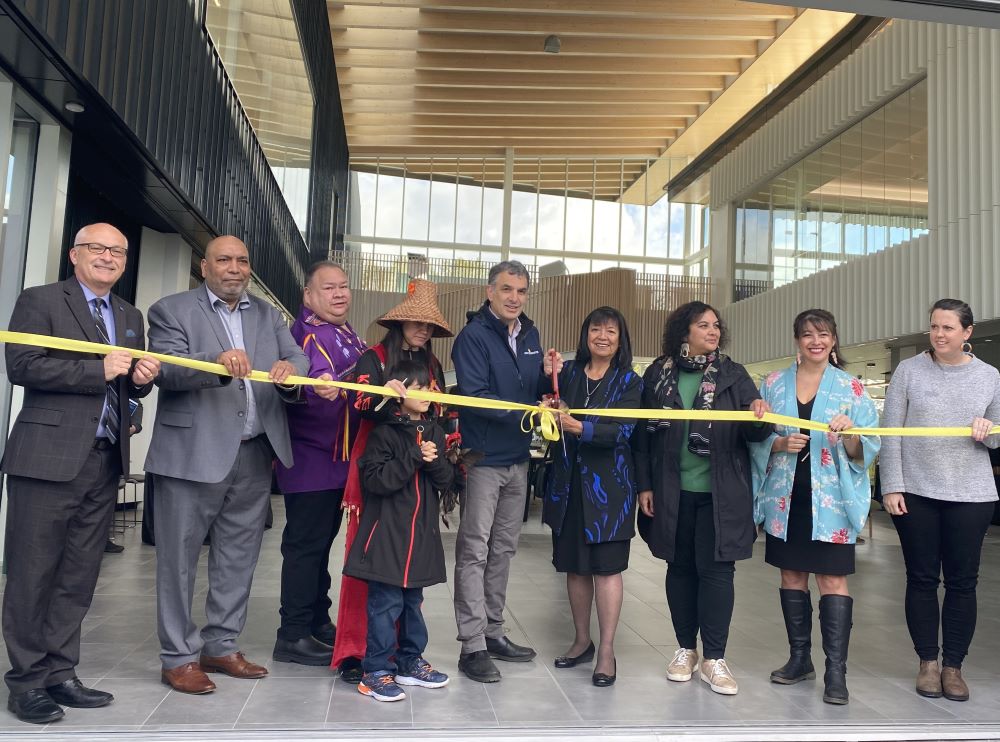
And it is a beautiful building. An integrated and connected aquatic, fitness and community complex, physically and demographically accessible to all, and a new social hub and community destination. Two pools, one ready to support inter-regional competition, one more fun and accessible for a broader community of users. Two hot tubs sauna space, all accessible change rooms. Two gymnasia, dance rooms, meetings rooms, fitness area twice the size of the previous buildings, and a community living room connecting them all.
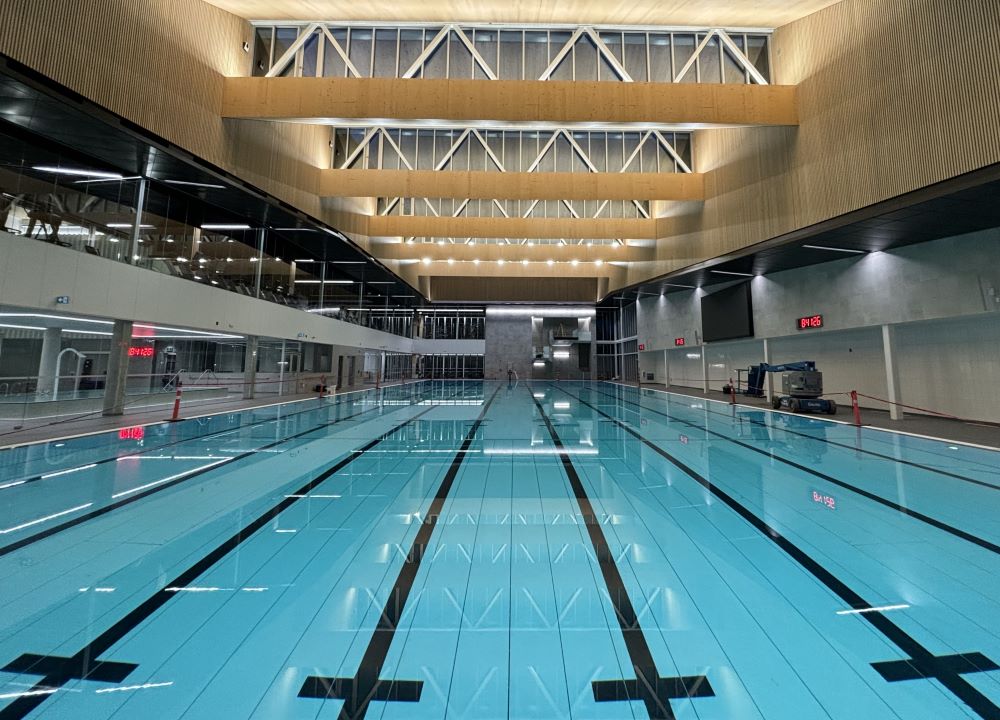
The first aquatic centre in Canada to achieve the Canada Green Building Council Zero Carbon Building-Design Standard, and designed to follow the Rick Hansen Foundation Gold Accessibility certification which considers people of differing levels of physical mobility, as well as addresses gender and cultural sensitivities.
The City’s largest ever capital investment, now having the keys turned over to an operation team who have already spent months staffing up, training up, and learning how to work in this new space. All of this required coordinated efforts across city departments, from Finance, to engineering to Parks and Recreation. There are a lot of kudos to hand out here.
The community has a new heart. I hope you head over there and check it out, because it belongs to you. The “dry side” is open now, the aquatic centre side will soft open on May 14, and there will be a Grand Opening celebration on June 1. All the info you need is available here.
The last two weekends have been action packed. Summer events season is upon us, and I can’t possibly blog all of the events happening in town, but here are some highlights from the last couple of weeks.





The same day as the Hyack Parade and Festival, the May Day celebrations took place in Queens Park, featuring 2023 May Queen Alessia Preovolos (right).

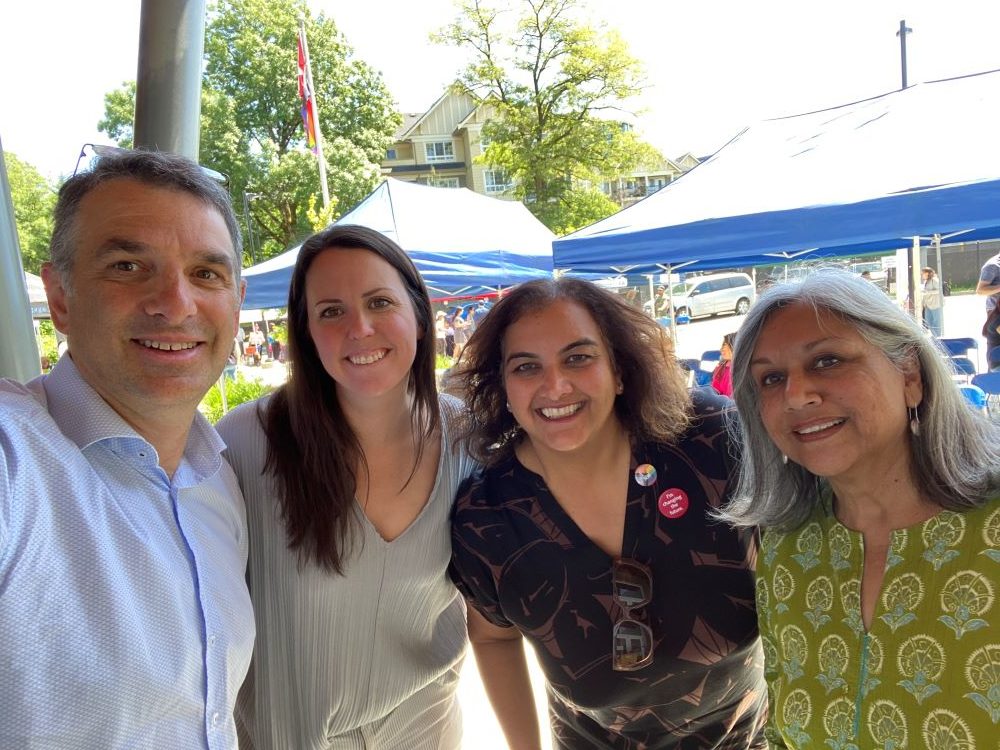




I love Summer time. Wait – its not summer yet?
I wrote last week about the political part of the Lower Mainland LGA annual conference, here is the rest of what happened, including the Sessions and Resolutions.
Sessions:
A major part of the annual meeting are workshops and panel sessions where Local Government leaders can share and learn. Considering about half of the attendees this year were new to the job of being a Mayor of City Councilor, these formal sessions (and the ample informal networking time) is really valuable. This is the briefest summary of the sessions this year.
Local Government Partnerships & Innovation
This was a panel discussion with representatives from three Municipalities taking innovative approaches to their unique challenges: Abbotsford taking an Airport the Federal government didn’t want anymore and making it a local economic driver; Whistler working to bring community-based health care work in their unique community; and Chilliwack taking an aggressive approach to Downtown Revitalization.
The last item sparked a lot of interest in the room, and was also the subject of a pre-conference tour. The centre of the discussion is a block branded as District 1881 that over more than 15 years went from this: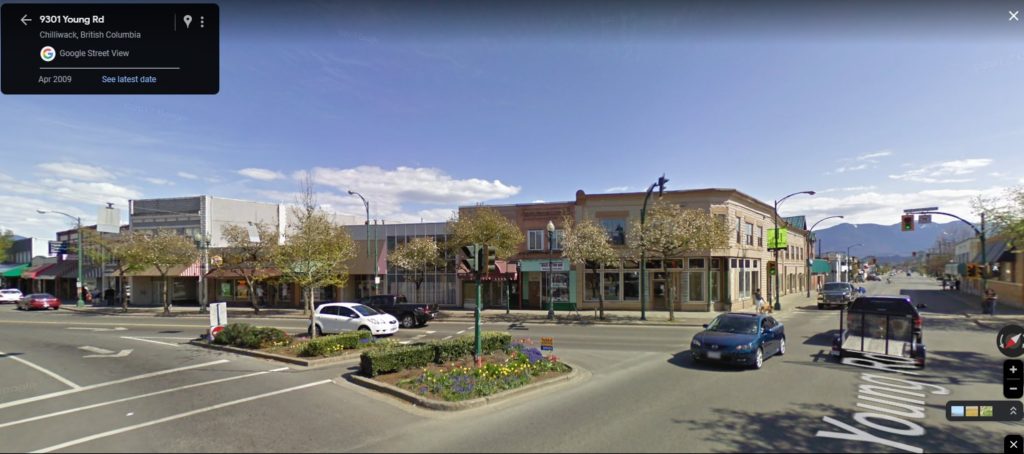
To this:
To this: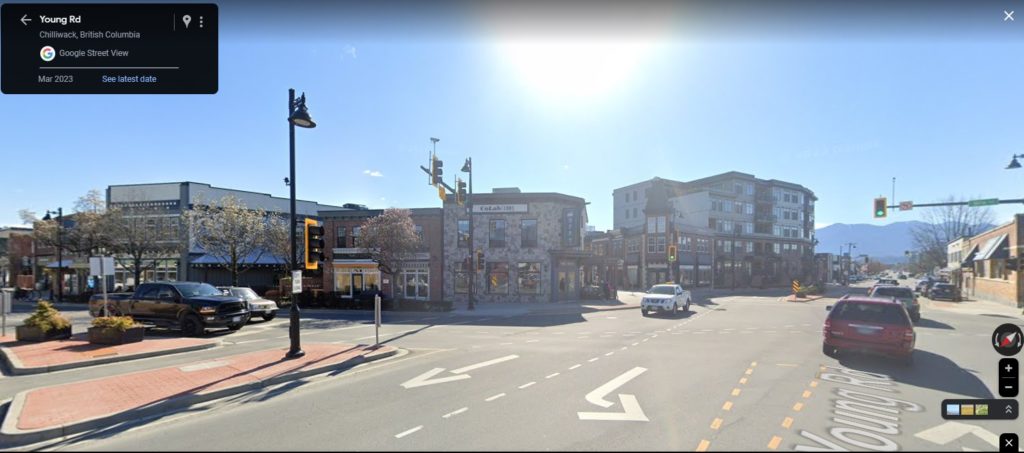
The Streetview images don’t fully represent the texture of the change, as the first photo has a lot of end-of-life buildings, many boarded up stores and low value leases inthe few remaining. The new Centre is certainly attractvie and higher value (arguably gentrified?). There were some good lessons from their experience here, some not particularly useful now (“buy up land before the prices are driven up!”), and some very useful, though sometimes hard to achieve (“be clear on your vision and stick with it, even through changes in council and government; build partnerships early”). I had some good discussion with colleagues from Chilliwack after the panel to get more details, and will be following up.
Everyone’s Responsibility: Codes of Conduct & Ethics in City Hall Description
This was an interesting and timely panel ad most local governments (by direction of the Province) are reviewing their Codes of Conduct now, we have new Councils across the region, and we were meeting in Harrison, one of the municipalities that is currently facing scrutiny for its council conduct challenges. The Panel included a member of the Provincial government who works in local government oversight, a Councillor for Squamish, which is a municipality with a “model” Code of Conduct, introduced last term, and a Lawyer who guides Cities (including New West) on Code of Conduct issues.
This was an interesting conversation that spoke about the importance of a strong CoC, and also admitted that a CoC was not a panacea for all forms of organizational dysfunction. So many of our systems in local government organization rely on good faith participation, and the development of a CoC is one of these. The importance of developing a CofC when things are going well was emphasized, because trying to bring them in during time of maximum disruption (when they are needed the most) does not work – they have to be in place ahead of time. Lesson learned.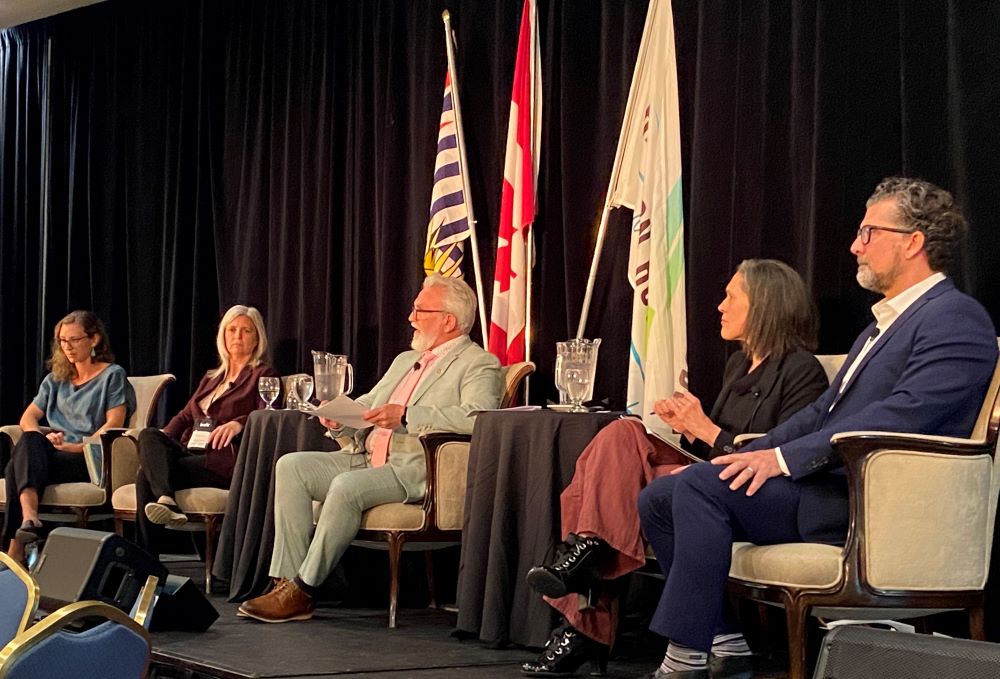
Running a Positive Election Campaign: Reflections and Lessons Learned from the 2022 BC General Municipal Election
This panel brought elected types from Vancouver, Burnaby, Squamish, and Langley together with the observer of all things Municipal, Justin McElroy, to discuss the campaign of 2022, and the potential for positive messaging as a positive force in elections. There was a*lot* here about the battle of ideas, and the absolute quagmire that is election period Social Media. Perhaps one of the insights that stood out was Justin’s advice/observance that elected people who are still talking about the election 6 months later are probably the ones who will not survive, which evokes a bit Nenshi’s comments: stop campaigning and do some work. There will be lots of time to campaign three years from now. Perhaps the most interesting moment was when the question was asked about the role of “Kennedy Stewart’s Road Tax” in a positive campaign, but you had to be there to appreciate it.
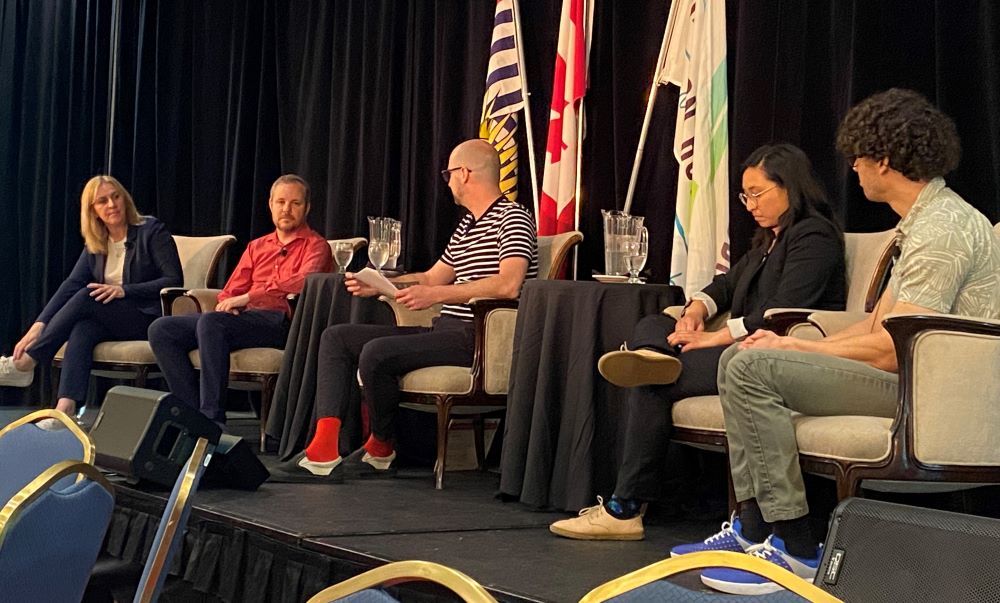
We also had a great closing keynote from Bowinn Ma, the Minister of Emergency Management and Climate Readiness, speaking about the lessons learned from the atmospheric river floods, Lytton fire, and other major events of the last few years ,and new ways the Provincial Government is working to help local governments be prepared for the next shitty climate-change-driven catastrophe (my words, not hers), including the Climate Ready BC website
Resolutions
Except for years where there is a spectacular speech implosion, the resolutions session is the most noteworthy part of most Lower Mainland LGA meetings. This is the part where municipalities put forward resolutions they hope the membership will endorse, mostly calls for Senior Governments to do things, like change policy, legislation or revenue streams for local government. In 2023 we had 35 resolutions debated, and you can read all about the here. Most were successful, but some failed. I am only going to speak to the ones that New Westminster took to the session. For the rest, you will have to find some other mayor’s blog. This is a really fun debate process for those who dig local government policy wonking, and want to make change.
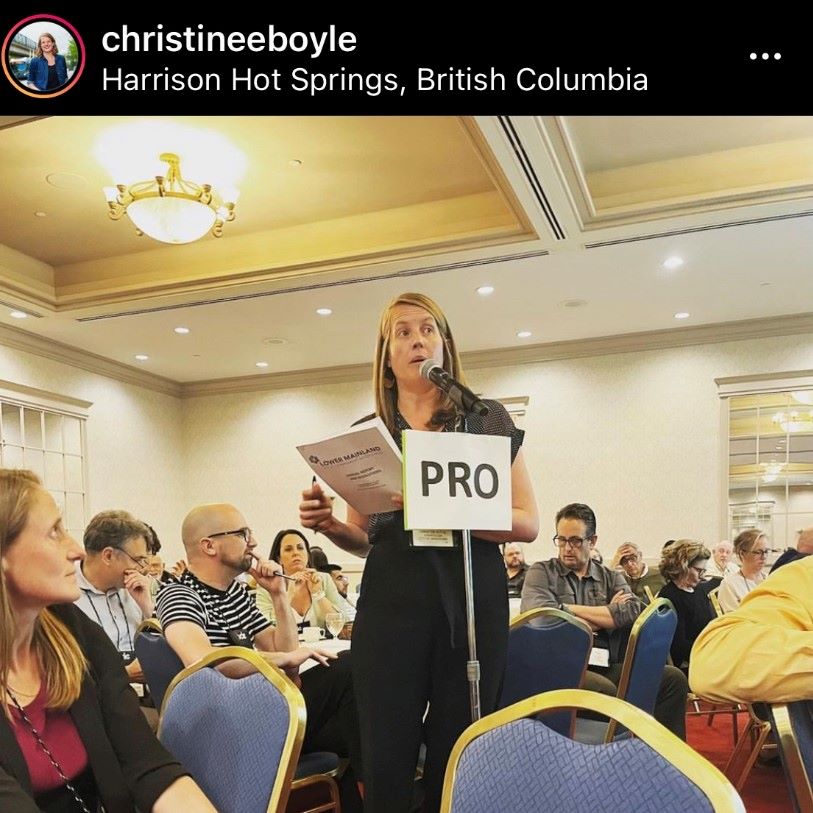
R9 Equitable Communities
…be it resolved that UBCM call upon the Province of British Columbia and the Government of Canada to provide resources and policy direction to enable local government to implement analytical processes for the assessment of systemic inequalities (i.e. Gender-Based Analysis Plus) across local government capital investments, operations and strategic initiatives to ensure all citizens can participate fully in civic life and to make measureable progress towards dismantling system inequality in our communities.
This passed non-controversially.
R10 Exemption to the Controlled Drugs and Substances Act
…be it resolved that the LMLGA and UBCM request that the BC Government request Health Canada add “public park spaces designed for and used by children and youth” to the list of exceptions to the Controlled Drug and Substances Act exemptions.
This resolution was divisive, and was eventually amended to remove the work “park”, which left it asking for a ban for all public spaces. As this effectively results in full recriminalization of decriminalized drugs, this derailed the motion completely. The amended motion was endorsed by a slim majority of delegates, but in this form will no doubt be ignored by the Federal and Provincial governments, a classic example of cutting off ones nose to spite one’s face.
R16 Vacant Property Tax on Commercial Properties
…be it resolved that UBCM urge the Province of British Columbia to provide local governments with an option to introduce a vacant property tax applicable to commercial properties
This was another hotly-debated resolution, but with a solid majority of delegates voting in support. This will no doubt be ever more hotly debated at UBCM, and the rural-urban divide on this issue may be more pronounced than one might expect.
R28 Bringing Equity to Traffic Enforcement
…be it resolved that UBCM calls upon the provincial government to implement a means-tested traffic fine system, similar to Finland, Switzerland, Sweden or the UK where fines may be calculated on the basis of the offender’s income.
Perhaps surprisingly, there was little debate on this issue, and reflecting the public opinion polls on the matter, this resolution was supported by a solid majority of delegates. Again, I expect this to have a rockier ride at UBCM, but the level of support was positive.
So all in all, New West was 3 for 4 for our resolutions, and our memberswere the re to support solid resolutions for other progressive councils from around the region – this is an area where Port Moddy asnd Squamish really step up and take some regional leadership.
In what became a running joke for some during the resolution debates, was the frequency with which the term “slippery slope” was used as an excuse to not endorse a regulatory change. This is a bit silly, as all regulation is, buy it very nature, a potential slippery slope, which is why the framing of it is as important as the request for it. But I also note that the “slippery slope fallacy” is the only logical fallacy we common name as we are committing it. In debate, we rarely say “this is a total non sequitur, but…” or “I would like to offer the strawman argument that…”, but we have no shame in saying “If we approve this, it is the thin end of the wedge!”.
Maybe I’ll save the rhetoric lecture for UBCM…